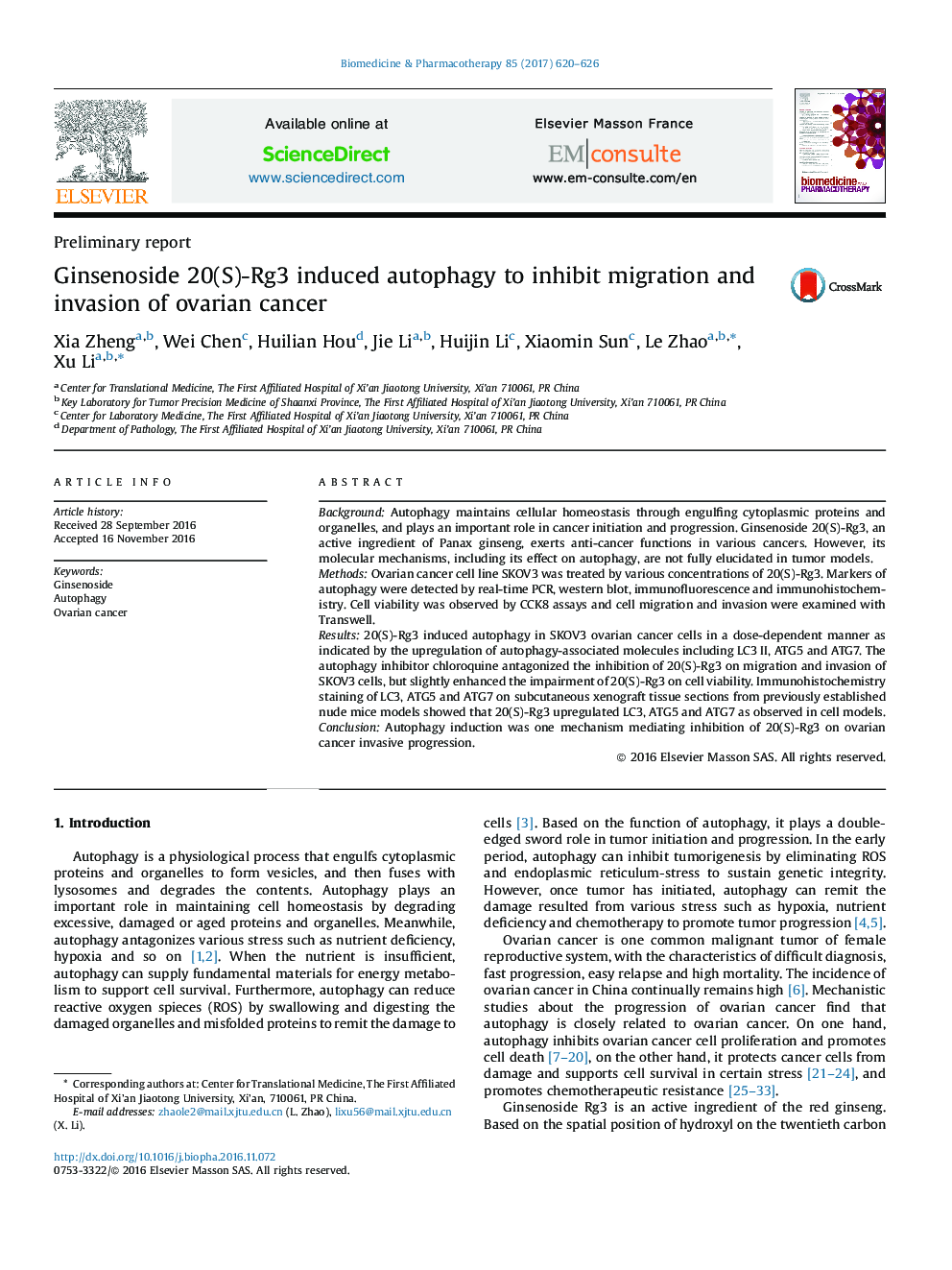| Article ID | Journal | Published Year | Pages | File Type |
|---|---|---|---|---|
| 5553668 | Biomedicine & Pharmacotherapy | 2017 | 7 Pages |
BackgroundAutophagy maintains cellular homeostasis through engulfing cytoplasmic proteins and organelles, and plays an important role in cancer initiation and progression. Ginsenoside 20(S)-Rg3, an active ingredient of Panax ginseng, exerts anti-cancer functions in various cancers. However, its molecular mechanisms, including its effect on autophagy, are not fully elucidated in tumor models.MethodsOvarian cancer cell line SKOV3 was treated by various concentrations of 20(S)-Rg3. Markers of autophagy were detected by real-time PCR, western blot, immunofluorescence and immunohistochemistry. Cell viability was observed by CCK8 assays and cell migration and invasion were examined with Transwell.Results20(S)-Rg3 induced autophagy in SKOV3 ovarian cancer cells in a dose-dependent manner as indicated by the upregulation of autophagy-associated molecules including LC3 II, ATG5 and ATG7. The autophagy inhibitor chloroquine antagonized the inhibition of 20(S)-Rg3 on migration and invasion of SKOV3 cells, but slightly enhanced the impairment of 20(S)-Rg3 on cell viability. Immunohistochemistry staining of LC3, ATG5 and ATG7 on subcutaneous xenograft tissue sections from previously established nude mice models showed that 20(S)-Rg3 upregulated LC3, ATG5 and ATG7 as observed in cell models.ConclusionAutophagy induction was one mechanism mediating inhibition of 20(S)-Rg3 on ovarian cancer invasive progression.
